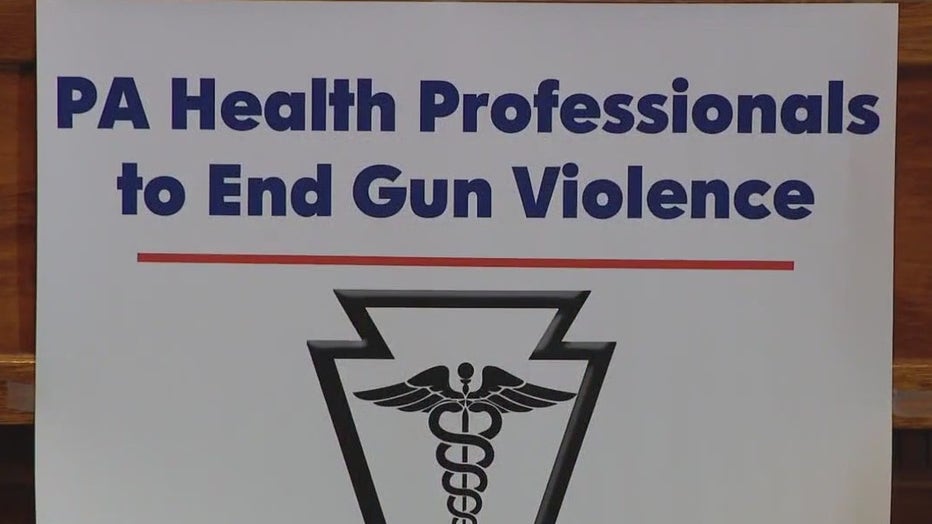Task force to end gun violence launched by doctors, nurses, health experts in Pa.
Doctors, nurses, health experts launch new PA task force to end gun violence
Doctors, nurses and health experts on the front lines caring for and saving gunshot wound patients have come together to push for preventative change across the state in an effort to end the gun violence epidemic.
CENTER CITY - Doctors, nurses and other health professionals on the front lines of caring for and saving gunshot wound patients in the city are coming together to push for preventative change.
They gathered at City Hall Tuesday, announcing a new statewide coalition, the PA Health Professionals to End Gun Violence. It comes as the city says shootings are down, and in September, Philadelphia had 10 reported homicides - the lowest in almost a decade.
Trauma surgeon Dr. Elinore Kaufman says it doesn’t change the perception.
"It doesn’t feel safe in Philadelphia because it is not safe. Our policymakers are allowing the free flow of firearms to make the trip to the corner store, for my patient, a fatal journey," she says. "We are doing better, but we still have so far to go."

A trauma nurse for 19 years in the city, Sunny Jackson says she and her colleagues have seen the mental, physical, and emotional toll of gun violence play out in real time.
"I’ve held a lot of patients’ hands through these worst times, and I’ve held a lot of mothers when their child has been severely injured or has died," she says. "I’m emotionally exhausted, but I won’t stop advocating for my patients."
MORE HEADLINES:
- Triple shooting on SEPTA bus in West Philly under investigation: police
- Employee critically shot by customer after confrontation at ShopRite in Olney: police
- Innocent woman killed by stray bullet outside Kensington shop: police
Among their goals, the group wants to save lives beyond their work in healthcare facilities. They are advocating for preventative measures to include requirements for safe gun storage, lost and stolen gun reporting, as well as closing the loopholes in Pennsylvania’s background checks and allowing for extreme risk protection orders, which simply means, "The opportunity to petition for a firearm owner to be temporarily separated from lethal means at times of crisis," says Dr. Kaufman.
The coalition comes following a recent move by the U.S. Surgeon General and a statement by the American College of Physicians that gun violence is a public health crisis.
"There is a long history in medicine of physicians advocating for common sense measures to protect the health of our patients. Doctors advocated for warning labels on packs of cigarettes when we identified that smoking causes cancer," says Brett Biebelberg, a fourth-year medical school student. "Legislative inaction is failing our patients, and we must take a stand."

